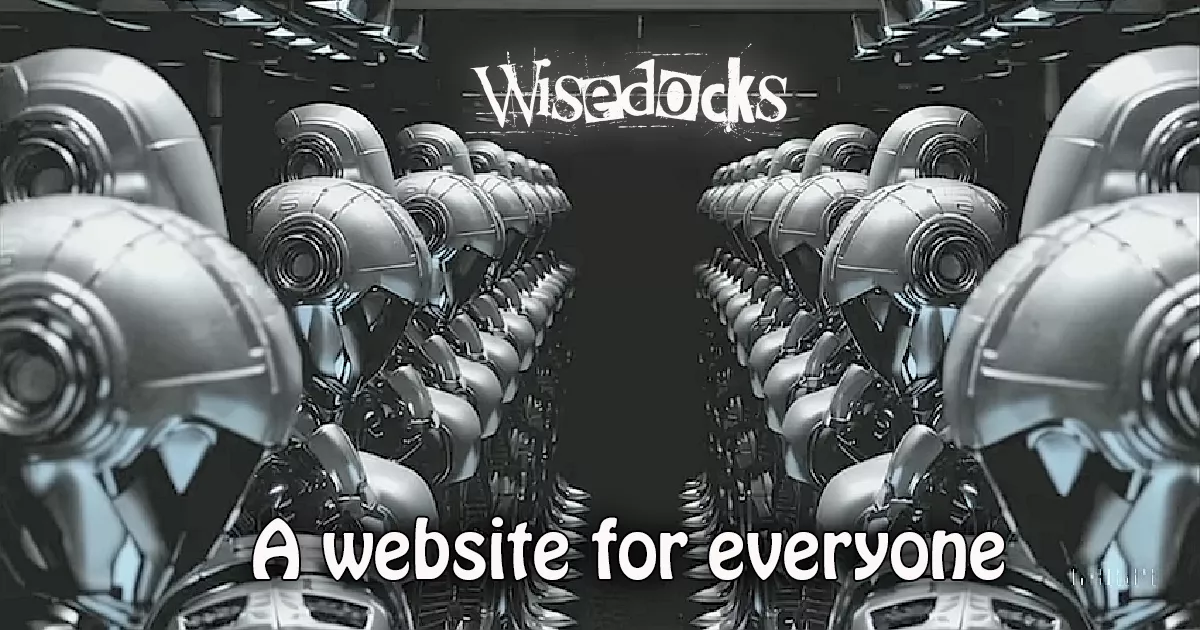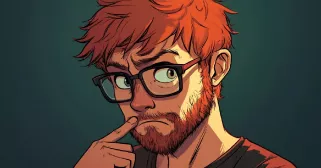Could a Personal Website Revolution Save the Internet?
No Social Media?
Social media has been amazing over the last 20 years. I've spent more than my fair share of time doom scrolling through Facebook, Twitter, Instagram, Reddit, Snapchat, TikTok, Pinterest, and many others. I've laughed and shared with friends and family as we connected over our lives, often from a distance—which I actually like, lol. But over the last few years, my attitude towards social media has soured considerably.
I've posted and shared some fairly questionable things over the decades, but in recent years, my chickens have come home to roost. Facebook has put me in what feels like a perpetual soft ban. Just as soon as one ban is lifted, their AI digs up something I posted years ago, and back I go. It’s gotten to the point where I’ve stopped using the platform much because my posts are nearly invisible to anyone.
I slowly started using Twitter, but then Elon Musk bought it and, well, ruined it. It used to be a great place to get news from reputable sources, but those organizations have been leaving in droves. What’s left feels like an empty canyon echoing with hateful rhetoric bouncing between its cliff walls.
Snapchat? I don’t think anyone even noticed when it died. Instagram never was my cup of tea, but I do enjoy watching videos there occasionally. At this point, I’ve given up on all of them—except Reddit. I love Reddit and visit it several times a day. The setup is fantastic: you only see what you’re interested in, and the ads aren’t as obnoxious as on other platforms. Plus, the ability to downvote posts and the incentive to maintain a good karma score helps keep the content sane.
A Website For Everyone
With all that said, I’ve been trying to articulate what the future of online interaction could look like. One idea I keep coming back to is a website for everyone. Funny enough, after writing this, I discovered the Fediverse—a decentralized network of platforms that shares many of the same principles I’ve been envisioning. Think of it as a real-world example of what I’m talking about.
Imagine if everyone had their own personal website where they could post pictures, short updates, or longer-form content like this blog. With your own website, there’d be no filters or moderators taking down your content.
Of course, this would require an easy-to-use website builder that almost anyone could manage. Then we’d need a central app—essentially an RSS reader—that would pull posts from your friends, family, or whoever you follow and display them in chronological order, as Father Time intended (looking at you, Facebook).
If someone doesn’t like what you post, they could simply hide it or unsubscribe, but your content wouldn’t be removed just because a few people got offended. (Speaking from experience, this happens a lot online.)
This central RSS feed platform could be developed as a non-profit and built on the open-source model, similar to how WordPress started. (I won’t get into recent issues with their leadership, but it’s worth noting that most of WordPress was built by volunteers who loved the community.)
This RSS app could pull content from various sources—dedicated websites, WordPress blogs, Tumblr, or even social media sites (if they allowed it). The key would be to set up a decentralized leadership structure right away to prevent one person or group from ruining it. Mastodon comes to mind as an example of this decentralized approach. All you’d need is a central login structure, and then you could add links to all your feeds, whether they’re blogs, personal websites, or even social media accounts.
Is This Possible?
Is this already a thing? It turns out, yes! After writing this, I learned about the Fediverse, which operates on similar principles to what I’ve described here. Platforms like Mastodon, PixelFed, and PeerTube already use a decentralized model to let people connect, share, and communicate without a central authority. It’s not a perfect solution yet, but it’s proof that this kind of system can work.
That brings us to ActivityPub, the protocol that makes the Fediverse possible.
ActivityPub
ActivityPub is an open, decentralized protocol that allows blogs, social networks, and other platforms to communicate within the Fediverse. By enabling your blog to use ActivityPub, you can connect it to platforms like Mastodon, enabling users to follow your blog posts directly from their Fediverse accounts, interact with them via likes and comments, and share them seamlessly across the network. It turns your blog into a social, federated hub, making it part of a larger, user-driven web ecosystem without relying on centralized platforms.
The Fediverse isn't a single platform—it's a network of interconnected apps. Here are some popular choices, depending on what you're looking for:
-
Social Networking (like Twitter):
Mastodon is the most popular choice. You can join an instance (server) that fits your interests or create your own. -
Photo Sharing (like Instagram):
PixelFed lets you share photos and connect with others on the Fediverse. -
Blogging Platforms:
- WriteFreely or Plume for simple, minimalist blogging.
- WordPress with the ActivityPub plugin to federate an existing WordPress blog.
-
Video Hosting (like YouTube):
PeerTube is ideal for hosting and sharing videos.
Video Is A Bottleneck
I’ve always said I wish everyone could have their own website on their own domain, and that a simple RSS reader could make this vision a reality. But there’s a big problem: video.
Video is consumed far more than anything else on social media today. Most people don’t want to read—they need pictures, and those pictures need to move to hold their attention. Regular websites on a VPS (or, God forbid, shared hosting) are terrible at delivering video.
The best way to include videos on personal websites is to upload them to a CDN or YouTube and embed them. But that’s a hassle and would turn off 95% of people. For example, I spent about 20 minutes optimizing the video below just to include it on my site and self-host it.
This bottleneck has forever killed my dream of everyone having their own customizable website. I blame social media for making things too easy. Because platforms like Geocities—and the more recent Neocities—haven’t been given the resources to evolve, my dream remains a dream.
While self-hosting videos is still a bottleneck for personal websites, platforms like PeerTube are tackling this challenge by enabling decentralized video hosting.
The Next Big Thing?
Social media seems to be in a downward spiral lately, so maybe it’s time to start pushing for the next big thing. I think a central app that aggregates RSS feeds from all your friends’ personal websites could be it—or better yet, a decentralized network like the Fediverse. Platforms like Mastodon or PeerTube already let users connect across independent servers, bringing us closer to the kind of future I’ve been dreaming of.
Imagine visiting your friends’ pages to see not just their posts, but how they designed their websites. Some would go full-on MySpace crazy, but others might create truly awesome sites that are fun to explore. But the RSS feed app would only grab the posts they make so you wouldn't have to subject your eyeballs to crazy moving backgrounds and flashing text everywhere if you don't want to.
What do you think? Could this idea work, or is it just wishful thinking? If this resonates with you, I highly recommend exploring the Fediverse. Platforms like Mastodon are a great starting point—they might just be the next big step toward a decentralized, user-driven web.
Neocities.org
Most people can’t afford, or don’t want to pay, for their online presence. Platforms like Neocities could be the solution. Here’s an excerpt from their website that perfectly sums up what I’m trying to say:
We are tired of living in an online world where people are isolated from each other on boring, generic social networks that don't let us truly express ourselves. It's time we took back our personalities from these sterilized, lifeless, monetized, data mined, monitored addiction machines and let our creativity flourish again.
I highly recommend signing up if you don’t already have a website of your own. Sign up here!
With a little work, sites on platforms like Neocities could even integrate into the Fediverse, making them part of a larger decentralized network.
This is not an affiliate link—I just genuinely love what they’re doing. I first learned how to write HTML on Geocities, a similar site, over twenty years ago. With Neocities, you will need to know some basic HTML to get started, but they offer courses to help you learn. It’s a great way to explore web design and unleash your creativity. I guess I have a soft spot for services like this.
The Fediverse is proof that a decentralized, user-driven web is possible. Maybe it's time we all took the leap and started building the next big thing, one website at a time.



